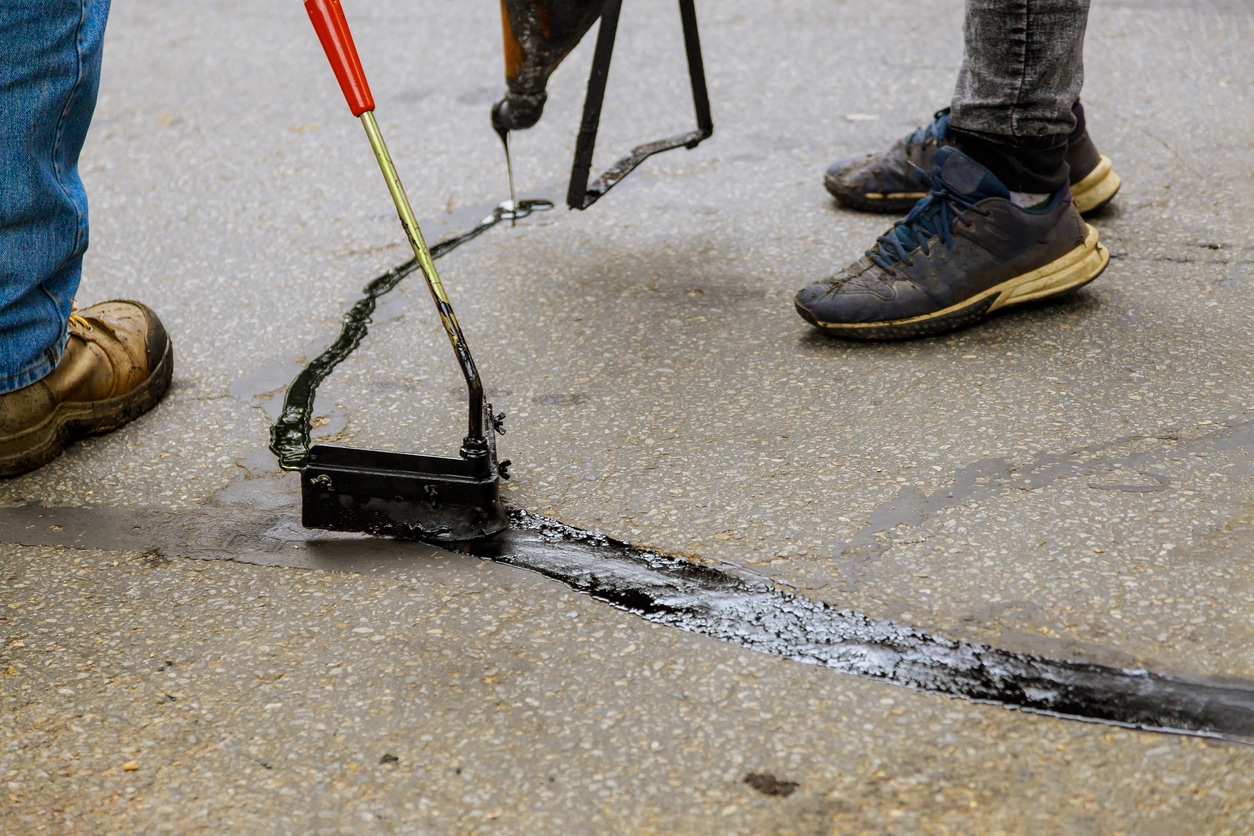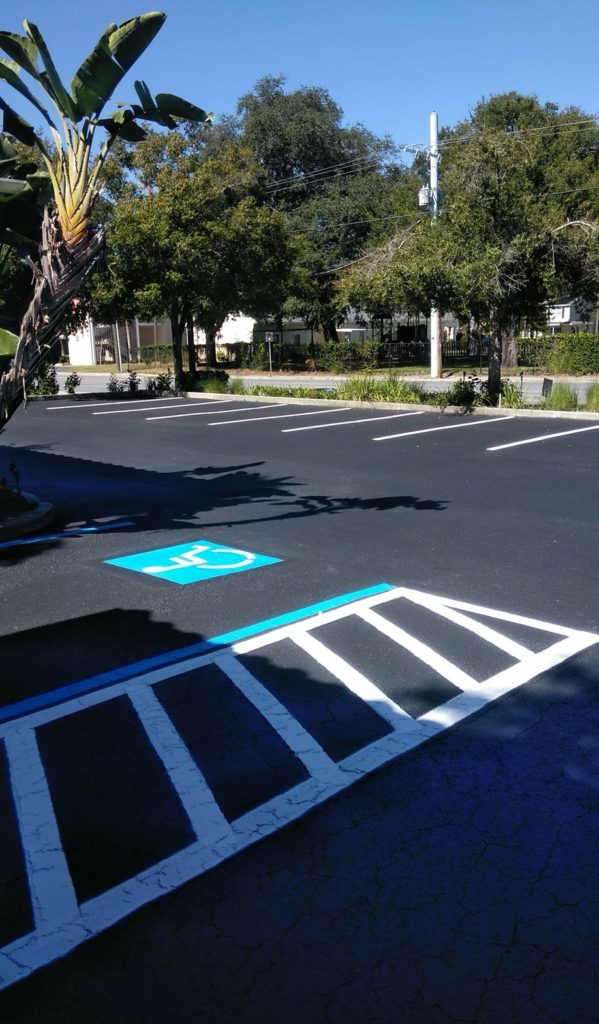Prolong Sidewalk Life Expectancy: Ingenious Cold Mix Asphalt Sealing
Prolong Sidewalk Life Expectancy: Ingenious Cold Mix Asphalt Sealing
Blog Article
Cold Mix Asphalt Vs. Hot Mix Asphalt: Which Is Right for You?

Make-up Distinctions
Cold mix and hot mix asphalts differ substantially in their structure, with distinctive characteristics that affect their performance and applications. Cold mix asphalt is created by emulsifying the asphalt binder with water and an emulsifying representative before mixing it with aggregate. This method allows for the asphalt to be practical at reduced temperature levels, making it ideal for momentary repair work and for usage in chillier weather condition conditions. Hot mix asphalt, on the other hand, is manufactured at high temperature levels, typically between 300-350 ° F, which assists to attain far better compaction and an extra sturdy end product. The hot mix asphalt production process involves warming the accumulation and asphalt binder individually before integrating them at the asphalt plant.
Additionally, chilly mix asphalt has a tendency to be much less dense and more adaptable than hot mix asphalt. This adaptability makes it much better matched for locations with higher levels of movement, such as driveways or roadways with hefty traffic. On the other hand, hot mix asphalt is understood for its high sturdiness and resistance to rutting and splitting, making it a favored choice for highways and high-traffic roads where durability is vital.
Installation Refine Differences
The process of setting up chilly mix and hot mix asphalt shows noteworthy differences in their needs and treatments. Cold mix asphalt, being a more versatile product, can be used straight from the bag or container onto the crater or harmed location. It requires very little preparation work, such as cleaning the area and condensing the cold mix with hand devices. This makes it a practical alternative for quick and short-lived fixes. In contrast, warm mix asphalt requires an extra fancy installation procedure. It entails heating the blend to high temperature levels prior to laying it down on an appropriately prepared base. The prep work consists of compacting the base, applying a tack coat, and using heavy equipment like pavers and compactors for a resilient and smooth coating. Due to the heating needs, hot mix asphalt setups are generally performed by professionals with specific devices, making certain a much more irreversible and structurally sound outcome.
Resilience and Durability Aspects
When thinking about asphalt options, toughness and durability are essential factors to review for enduring sidewalk performance. Hot mix asphalt (HMA) is known for its outstanding sturdiness and long life.
In regards to longevity, HMA commonly outmatches CMA as a result of its remarkable stamina and resistance residential or commercial properties. HMA pavements have a longer service life, calling for much less regular repair services and upkeep, which can translate to set you back savings in the future. Furthermore, HMA sidewalks are a lot more easily personalized to satisfy specific task requirements, further improving their durability.
Cost Factors To Consider
Thinking about the monetary effects is a critical facet when examining the selection in between warm mix asphalt (HMA) and cool mix asphalt (CMA) for pavement jobs. While the first cost of warm mix asphalt is typically higher than that of cool mix asphalt, HMA commonly supplies a much more economical remedy in the lengthy run due to its remarkable longevity and long life.
In enhancement to product prices, it's essential to consider the expenditures connected with setup and maintenance when comparing HMA and CMA. Eventually, the decision between HMA and CMA ought to take into account not just cold mix asphalt the first price however additionally the long-term economic ramifications to establish the most cost-efficient choice for the specific pavement project.
Environmental Effect Contrast
Comparison of the ecological impacts in between hot mix asphalt (HMA) and chilly mix asphalt (CMA) discloses unique differences in sustainability practices. HMA manufacturing requires high temperatures, leading to boosted power consumption and greenhouse gas discharges.
Furthermore, the usage of CMA commonly includes reusing existing asphalt sidewalk, promoting source conservation and reducing the amount of waste sent out to landfills. This reusing element better improves the sustainability of CMA compared to HMA. In general, when considering the ecological effect, CMA arises as a much more eco lasting choice because of its reduced energy demands, decreased exhausts, and the possibility for reusing existing materials. By selecting CMA over HMA, road building tasks can add positively to environmental preservation efforts.
Conclusion
In conclusion, the choice between cool mix asphalt (CMA) and hot mix asphalt (HMA) depends upon various factors such as make-up, installment procedure, durability, longevity, expense, and ecological impact. angle parking. While CMA offers a economical and quick option for small repairs, HMA guarantees exceptional toughness and long life for rush hour areas. Consider these aspects carefully to determine which kind of asphalt is the right choice for your paving requires

Considering the monetary implications is a crucial facet when examining the choice between warm mix asphalt (HMA) and cool mix asphalt (CMA) for sidewalk projects. While the preliminary price of warm mix asphalt is typically greater than that of chilly mix asphalt, HMA commonly offers a much more economical remedy in the long run due to its superior toughness and longevity. angle parking.Contrast of the ecological influences in between warm mix asphalt (HMA) and chilly mix asphalt (CMA) discloses unique differences in sustainability techniques.In conclusion, the selection between cold mix asphalt (CMA) and warm mix asphalt (HMA) depends on various factors such as structure, installment process, toughness, durability, cost, and ecological impact
Report this page